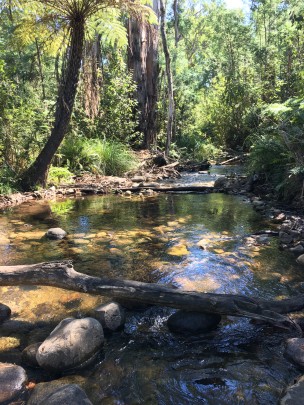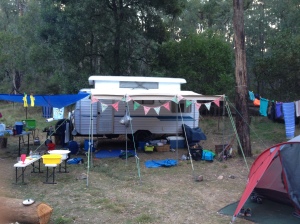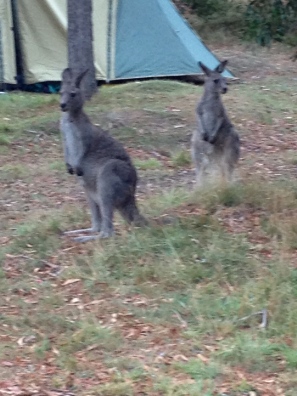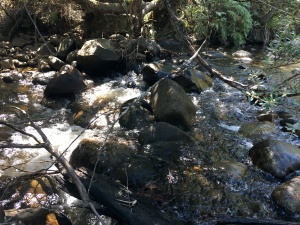
After posing the question last week – how do grown-ups play? – it seemed as though there were answers everywhere. As is often the way, I started to notice that I was not alone thinking this way, and there was quite a bit of discussion on the topic.
Thanks to those of you who commented – some really good ideas and thoughts, which I look forward to exploring (and which you can see in the comments in last week’s post). In addition, I read some articles which I wanted to share:
- Play means different things for different people (and dogs)
As I am trying to remember, ‘play means activities which we find delightful, which nourish us, which give us joy, and enable us to be at ease’.
And, often, it’s not the activity itself, but the mindset in which we are doing it, which makes the difference.
For instance, David Elkind writes about the importance of play in this article. He notes that play differs from work in an important way: ‘When we work, we adapt ourselves to our environment; when we play, we adapt our world to fit our imagination’. So, one person’s play could be another’s most hated task, or could be something that more closely resembles work.
When I thought about it, I could see this within my own family:
- My husband loves to build, make or repair things, often to then pull them apart and rebuild them differently. Repeatedly. He also loves listening to radio – talk back, sports programs, music, podcasts. He tends not to read.
- I love to read, to explore new places, to try new activities (often only to abandon them, but they were worth a try). I prefer quietness (unless I am singing, in which case I love belting out a tune).
- My son loves to study statistics and form ideal sporting teams, to sort and categorise, and to practice, repeatedly, hand-balling, shooting baskets, hitting cricket balls – without the pressure of a match or others watching. And he loves to make up, and sing loudly, long and often somewhat tuneless songs.
- My daughter, who intensely dislikes my son’s AFL 2016 Prospectus (‘he spends more time with that book than he does with me!’), loves to dance (I just need to do it to relax), to write long and emotive stories with lots of drawings, and to play, at times, with her Sylvanian families.
- Our dog loves nothing more than an empty plastic container, which she can wrestle into submission and then, once it no longer resembles its previous form, bring it back to us as a gift, with great excitement.
These are the activities we enjoy doing on our own – which is good, because in the main, we don’t share the same passions as each other.
When we are spending time together, or with friends and family, we might still be enjoying something that is a form of play, but it is a different activity. Or the approach changes. For instance, we might to shoot some baskets together (or try to – I’m still learning) but it turns from an almost meditative practice for my son into a competition (which he usually wins, if it’s against me, or its more closely fought, if against my husband – either way, everyone is happy). Or with my daughter, if we dance together, it turns into a time when she gets to teach me (which she loves to do), rather than a free flowing activity. It’s still play, but the purpose, and approach is different.
Note though – Play requires action, and participation. Passively watching something (unless we are drawn in, and emotionally / vocally reacting, maybe) – is not play. Possibly – maybe – rest. But not play.
2. We need to allow time FOR play, and time TO play
It doesn’t have to be a long time – although sometimes it will be. But, in many cases, you do have to make time for it. If we are not aware of it, we can whittle our time away, feeling neither the satisfaction of being able to create, nor the relaxation of not being under pressure.
Pip Lincolne shared one approach – scheduling it in – in her recent article in Kidspot here.
I must admit, at first, I thought this seemed TOO structured. But I wonder – maybe we (I?) don’t make time for play because we resist need to structure it in. After all, play should be spontaneous, like when we were kids, right?
Well, was it? Or did it feel that way because whoever cared for us made it feel as though we were being spontaneous?
3. There are opportunities all around us to build play into our lives.
We can do this through changing our environment – for instance, Play Streets Australia have been running sessions to remind us, and give us tools, to turn our streets back into safe play spaces for kids (and adults) – just as they used to be.
We can do this by changing the way we do things.
And we can build play in by being prepared to give it a go – after all, really, we don’t fail at playing, because playing is not about succeeding. It’s more about just doing – if something comes from it, great, but that’s a side benefit.
4. Playing more might generate a range of added benefits
Tracy Gillet, a blogger who is now based in Canada, wrote an interesting post titled ‘Simplifying Childhood may protect against mental health issues’. Now, I am not a health expert, and I would be hesitant to go that far (she does say ‘may’, I suppose), however I think she could be right in terms of the mental health benefits of slowing down and making time for more free play.
Allowing more play, by cutting back on some of the busyness that we can often get sucked into, could be beneficial for us all.
She quotes a counsellor /educator, who states that, ensuring ‘regular down time providing a sense of calm and solace in their otherwise chaotic worlds. It provides a release of tension children know they can rely on and allows children to recover and grow, serving a vital purpose in child development‘.
Putting it into practice
All of this information was great. But the best opportunity of all was to experience it for myself last weekend. We had a wonderful long weekend away with friends. I have to acknowledge that it required a fair bit of preparation (particularly as the van required a bit of work) but it was worth it. We all really had the chance to relax while we were there.
The freedom of camping (or caravanning), adjacent to a creek, lovely walks (including night walks – always a favourite), lots of space for unstructured play time for the kids, exploration and relaxation for the parents, and the challenges and fun of cooking on a campfire (including toasting marshmallows, of course), made for a lovely, playful, weekend. As you can see from some of the scenes from the weekend!
I’m looking forward to continuing to refine our lives, and find opportunities for more play time – watch this space!







Good on you Helen! Changes made already. I am dipping into a book (already listened to via CD ) called The Gifts of Imperfection by Brene Brown and I have signed up for her paid course via videos and more where I am learning more about giving myself permission to play. I think you’d like the book! Denyse
LikeLike
Starting to make changes, Denyse (including going to bed now!) I think I would like Brené’s book – I’ve enjoyed the two I have read, plus her posts. Will have to look out for it (I’m trying to pace myself though – I’ve got into a pattern of thinking ‘I MUST read …’ and trying to wind that back a bit! Thanks for visiting again – I really enjoy your feedback. Helen
LikeLike
Love the comments you’ve made Helen. My challenge is to remember that life will not run away if I stop and play. And yes, the kids love it too!
Went to the Garden Show today (yes, in the rain!!). Filled me with a sense of peace being around all those gardens/flowers. A worthy hobby/play space I reckon.
LikeLike
That is true, Ils, it won’t! And the flower show is always beautiful – sometimes the rain brings something out more clearly. That would have been lovely!
LikeLike
I love this article! Popping over from Blog with Pip. I am a teacher by trade and so used to advocating for play in kids lives, often I forget to include it in my own life though. Thanks for the reminder. Bron x
LikeLike
Thanks Bron! Easy to forget, isn’t it? Looking forward to checking out your site too (I can’t get onto it tonight, for some reason – probably my computer which has been playing up. Will try again tomorrow) x
LikeLike
This makes a lot of sense, Helen. Perhaps play is the missing ingredient to kill stress!! I love playing in my garden and with the kids. Probably don’t do enough of either though!!! x
LikeLiked by 1 person
I agree – I’m starting to become convinced that it is underrated, and I need to allow more regular time for it! Love the idea of playing in the garden and with your kids, and hope you have more chance this weekend to do so x
LikeLike